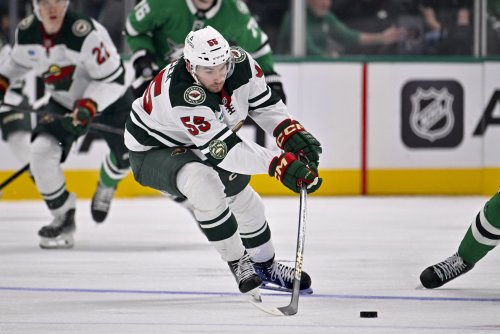
Methodology and Results
To determine the impact of a new head coach on a team’s performance, we'll look at the difference in standings points from the first entire season under the new head coach compared to the team’s prior season. Even if the new head coach replaced the previous coach midseason, looking at the first complete season under the new head coach allowed for an even comparison across all teams and situations. The assessment period for this analysis began in the 2005-06 season with the introduction of the shootout and goes up to this last season. Standings point totals for the lockout-shortened 2012-13 season were prorated to an 82 game season. The information was all pulled from www.hockeyDB.com.
There were 83 instances of new head coaches starting their first complete season with a new team in the assessment period. In individual team seasons, the results varied wildly. The best improvement from one season to the next under a new head coach was seen by 2006-07 Penguins under Michael Therrien. They finished 47 points better than the 2005-06 team led by Ed Olczyk, who was replaced by Therrien midway through the season. The worst change in performance was the Tony Granato-led 2008-09 Avalanche that finished 26 points worse than the prior season.
On average, teams with a new head coach improved on the previous season’s results by 5.76 points. Sometimes averages, or means, can be misleading as significant outliers can drag the average up or down. The median, or middle, number can be a sanity check and show how close the average is to the actual middle point of the data set. In this case, the median was 5, so the average is reasonable.
Here are the top ten results:
Some interesting things jump out of this list. Therrien appears on the list twice. Patrick Roy’s Jack Adams-winning first season with the Avalanche is #2 on the list. Former Wild coach Todd Richards is featured on the list for his first season with the Blue Jackets. Most important for the Wild, though, is the presence of Bruce Boudreau at #4 for his work with the 2012-13 Ducks.
How Boudreau Fits In
Boudreau was fired 22 games into the 2011-12 season, but was quickly hired to be the head coach in Anaheim. Although the Ducks didn’t make the playoffs that season, they soon enjoyed a significant jump in performance and finished every following season under Boudreau as the Pacific Division champions. The 2012-13 season saw the Ducks end up with 66 points during the lockout-shortened season. Prorated to an 82 game season, the Ducks would have ended the season with 112.75 points which I will round to 113 points for an improvement of 33.
Boudreau’s teams saw their standings points increase by an average of 23.5, well above the league average under a new head coach of 5.76. The disparity doesn’t appear to be the result of uncharacteristic outliers in his teams’ performances that happened to coincide with his first complete season with a new team. In seasons where Boudreau was the head coach for the entire season, his teams averaged 110.96 points per season.
Implications for the Wild
Still, there is reason to expect that Boudreau will produce a marked improvement in the Wild’s performance for the simple reason that Boudreau is an excellent coach. Boudreau demonstrated last year that he has the ability to adjust his system to fit the team’s performance and maximize wins. A finish of over 100 points by the Wild would not be an outlier, but rather fit right in with Boudreau’s career averages.
Think you could write a story like this? Hockey Wilderness wants you to develop your voice, find an audience, and we'll pay you to do it. Just fill out this form.







Recommended Comments
There are no comments to display.
Join the conversation
You can post now and register later. If you have an account, sign in now to post with your account.
Note: Your post will require moderator approval before it will be visible.